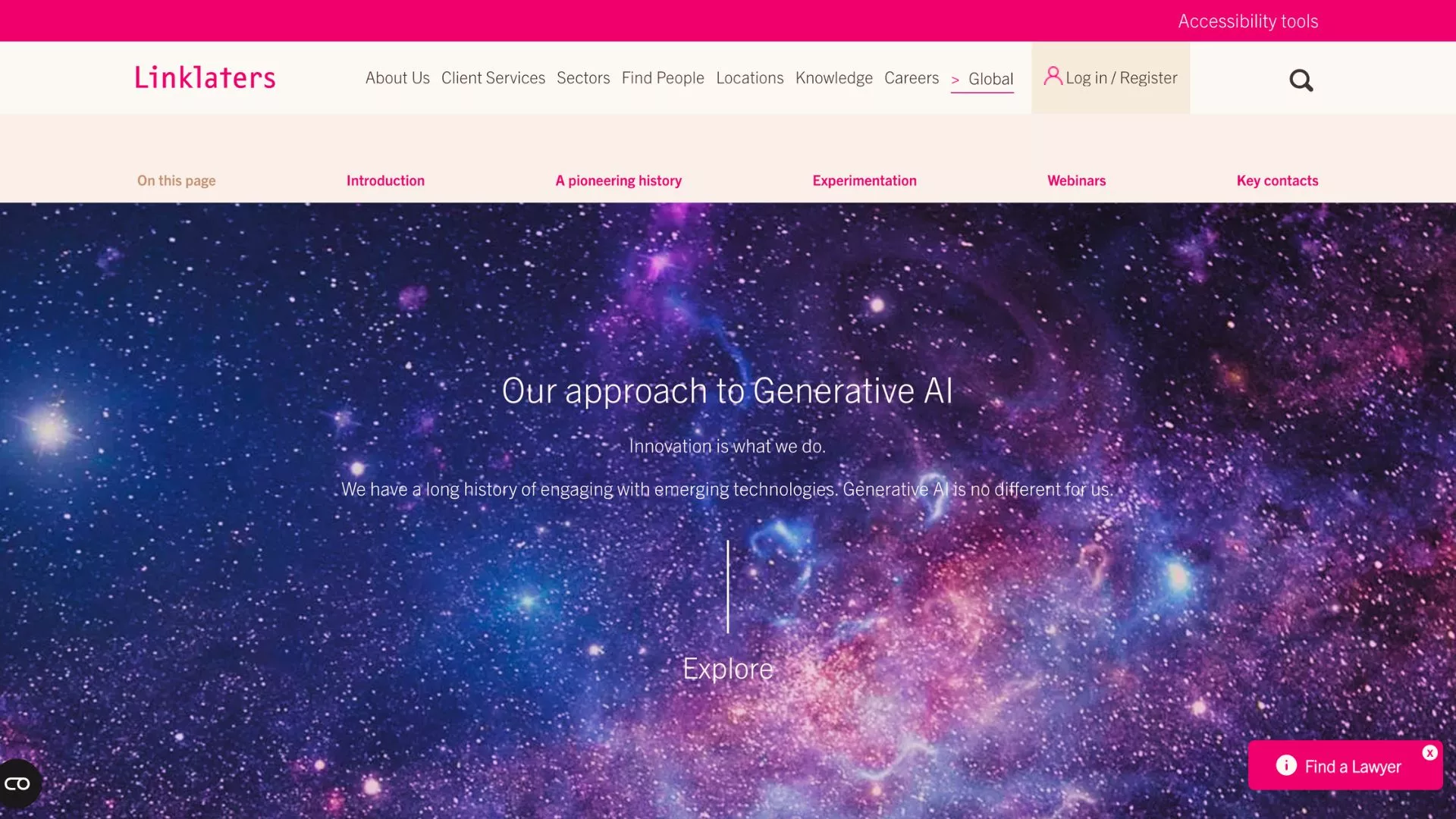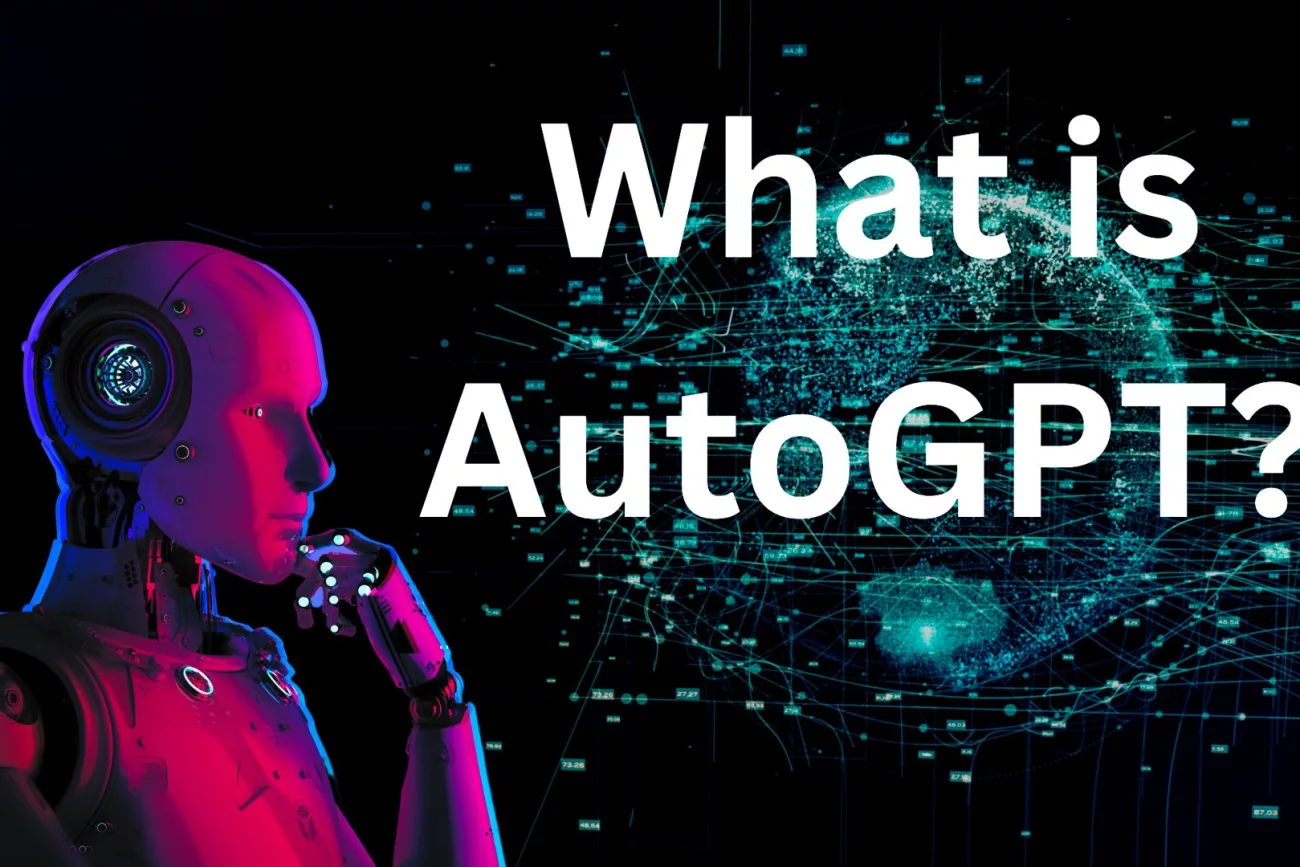
Key Insights
- Linklaters' AI Integration: The firm is pioneering the use of AI in legal services, employing tools like AI chatbots, AI legal assistants, and advanced search technology.
- AI Tools and Their Functions: These tools are designed to enhance the efficiency and accuracy of legal research and document drafting, revolutionizing traditional legal workflows.
- Challenges and Concerns: Despite the potential benefits, there are concerns about the accuracy, ethical implications, and impact on employment within the legal sector.
- Future of AI in Legal Practice: Linklaters envisions AI as a complement to lawyers, enhancing their capabilities and allowing them to focus on higher-level legal tasks.
Automated Legal Advice: Are We Trading Trust for Tech? 🤖⚖️
Key Points: The article explores the controversial use of AI in the legal field, particularly
🤖 AI’s Role in Law: Transformations, Jobs & Consciousness
Dive into AI’s impact on law firms, job displacement, and the consciousness debate. This edition
Law Firm SEO The Woodlands: Boost Your Firm’s Online Presence
Law Firm SEO The Woodlands Looking for law firm SEO The Woodlands? Discover the secrets
Linklaters’ AI Adventure: Legal Tech’s Brave New World or a Slippery Slope?
Is Linklaters leading a revolution in the legal tech world, or are they skating on thin AI ice? In a bold move that has the legal community buzzing, Magic Circle law firm Linklaters is making a significant push into the realm of artificial intelligence. But in an industry where tradition often reigns supreme, is this a leap into the future or a potential misstep?
As we pull back the curtain on Linklaters’ ambitious AI initiatives, we’ll dissect the realities, promises, and perils of integrating advanced AI tools in the legal landscape. From chatbots to AI-powered legal assistants, we’re diving deep into what this means not just for Linklaters, but for the entire legal profession. Fasten your seatbelts, legal eagles – we’re about to embark on an intriguing journey where law meets cutting-edge technology.
The AI Odyssey: Linklaters’ Leap into the Future
- Linklaters isn’t just dipping its toes into the AI waters; they’re diving in headfirst. Spearheaded by AI visionaries Marc Harvey and Shilpa Bhandarkar, the firm is setting the pace in the legal world’s race to embrace AI. This isn’t just about keeping up with the Joneses; it’s a strategic maneuver to stay ahead of the curve in a rapidly evolving legal tech landscape.
- With a multidisciplinary AI steering group at the helm, Linklaters is exploring uncharted territories. From compliance and ethics to risk management and experimental tech, they’re not just adopting AI – they’re weaving it into the very fabric of their legal operations. This bold initiative reflects a seismic shift in how traditional law firms view technology, not just as a tool, but as a partner in delivering legal services.
Future Law Firms Will Undergo 3 Pivotal Transformations
Discover how AI is revolutionizing the legal world. From law firm structures to educational shifts,
BloombergGPT: The Unprecedented AI Revolutionizing Finance
BloombergGPT Key points: BloombergGPT is a revolutionary 50 billion parameter language model transforming the finance
Can AI wake up? Signs we might miss!
Dive into the riveting debate on AI consciousness, from Google’s claims to legal dilemmas. Is
AI Tools at Linklaters: Transforming Legal Work or Just Hype?
- The firm’s foray into AI is more than just a trend-following move. They’re piloting generative AI tools that could revolutionize how legal work is done. Imagine a world where AI doesn’t just assist lawyers but collaborates with them, offering insights drawn from vast legal databases at lightning speed.
- These tools range from AI-powered search engines that can sift through reams of data to find that needle-in-a-haystack case law, to legal support programs that could draft complex legal documents in a fraction of the time it takes a human. The potential for efficiency and accuracy gains is enormous, but so are the questions about how these tools will reshape the legal profession.
As we continue to explore Linklaters’ AI initiatives and their wider implications, we’ll delve into the specifics of their AI chatbot, the role of AI in legal research and drafting, and the broader impact of AI on the legal profession. Stay tuned for more insights into this fascinating intersection of law and technology.
Chatbot in the Courtroom: Linklaters’ Digital Legal Aid
- In the digital corridors of Linklaters, a new player is making waves – their AI chatbot, built on Microsoft’s Azure OpenAI Service. This isn’t just any chatbot; think of it as a digital legal prodigy, equipped to handle a plethora of legal queries with the finesse of a seasoned lawyer.
- Within just 24 hours, this AI maestro fielded 2,600 queries, showcasing its potential as an indispensable tool in the modern lawyer’s arsenal. From providing quick legal references to drafting initial case outlines, this chatbot is redefining the boundaries of legal assistance. Yet, with great power comes great responsibility – ensuring accuracy and reliability remains a paramount concern, especially in a field where every word can tip the scales of justice.
AI: The New Age Legal Researcher and Drafter
- Linklaters isn’t stopping at just an AI chatbot. They’re pushing the envelope with CoCounsel – an AI-powered legal assistant designed to aid their lawyers in research and drafting. Imagine an assistant that can comb through thousands of documents, summarizing key points and drafting legal advice, all while you sip your morning coffee.
- This leap into AI-assisted research and drafting heralds a significant shift in legal workflows. Lawyers, traditionally burdened with voluminous research and endless drafting, now find themselves supervising and fine-tuning AI-generated work. It’s a paradigm shift – from doing all the heavy lifting to strategically guiding an AI powerhouse.
AI in Law: Revolution or Evolution?
- As Linklaters boldly integrates AI into its operations, it casts a spotlight on the broader implications for the legal profession. AI’s encroachment into law is not just about new tools; it’s about reimagining the role of the lawyer in an AI-driven world.
- Common fears loom large – will AI lead to widespread job losses in law, as predicted by some? Or, as Linklaters believes, will it empower lawyers, augmenting their abilities and freeing them to focus on more complex, creative aspects of legal work? It’s a controversial debate, with AI poised as either the protagonist or antagonist in the future of law.
- Beyond job security, there’s the ethical maze – how do we ensure AI in law upholds the stringent standards of fairness, privacy, and accuracy? Linklaters’ own AI risks and ethics group underscores the importance of navigating these challenges thoughtfully. It’s not just about harnessing AI’s power; it’s about doing it right.
♠️ LinkedIn Ads for Lawyers: The Digital Ace Card
Discover the transformative power of LinkedIn ads for law firms. Dive into data, strategy, and
Drama Legal: Riesgos de la IA Generativa y Enfrentamientos en el Tribunal
Mike Ruggles Founder & CEO Instagram Linkedin Sígueme en Instagram y LinkedIn para contenido exclusivo
AI Revolution in Law: Leveling the Legal Field
Discover how AI is transforming law firms, democratizing legal services, and reshaping the industry for
AI in Law: Navigating Uncharted Waters
- As we conclude our foray into Linklaters’ AI-driven transformation, it’s evident that GPT-4 Turbo stands as a beacon of both innovation and controversy. It represents a bold venture into uncharted territory, where legal acumen meets advanced technology. The implications of this fusion are profound, promising to reshape the landscape of legal practice.
- Will GPT-4 Turbo and similar AI tools prove to be revolutionary forces, propelling lawyers into a new era of efficiency and precision? Or will they be mere stepping stones, valuable but insufficient in addressing the complex needs of the legal world? The jury is still out, but one thing is certain – the legal profession is on the cusp of a significant transformation.
- In this dynamic scenario, one thing remains crucial: the need for a balanced approach. Embracing AI in law should not mean discarding the fundamental values and skills that define the profession. Rather, it’s about leveraging technology to enhance these qualities, ensuring that AI acts as a complement to, not a replacement for, the human element in law.
Your Voice in the AI-Law Convergence
- 🚀⚖️ Now, we turn to you, the legal professionals, tech enthusiasts, and thought leaders. What are your views on AI’s role in law? Is it a revolution in the making, or are we navigating a minefield of ethical and practical challenges? Your insights, experiences, and opinions are invaluable in shaping this ongoing narrative.
- If you’re intrigued by the possibilities of AI in law and eager for more thought-provoking content, join our community. Subscribe to our newsletter and stay ahead of the curve in legal tech. Engage in the conversation, share your perspectives, and be a part of shaping the future of legal practice.
As we close this chapter on Linklaters’ AI initiatives, let’s remember that this is just the beginning of a broader conversation. The intersection of AI and law is fertile ground for innovation, debate, and growth. So, keep your minds open, your arguments sharp, and your vision forward-looking. The journey into the future of legal tech is not just ongoing; it’s gathering momentum. Stay informed, stay engaged, and be ready to embrace the opportunities and challenges that lie ahead in this exhilarating fusion of law and technology. 🌟🔍
Share this post
Frequently Asked Questions (FAQs)
Q: What is Linklaters' approach to AI in law?
A: Linklaters is aggressively adopting AI, integrating tools like AI chatbots and legal assistants to revolutionize their legal services.
Q: What AI tools has Linklaters implemented?
A: The firm is using an AI chatbot for legal queries, CoCounsel for research and drafting, and AI-powered search engines for data analysis.
Q: How does AI benefit lawyers at Linklaters?
A: AI tools at Linklaters enhance efficiency in legal research, drafting, and data analysis, allowing lawyers to focus on complex legal tasks.
Q: Are there concerns about AI in law at Linklaters?
A: Yes, concerns include the ethical use of AI, the accuracy of AI tools, and the potential for job displacement due to automation.
Q: What is the future outlook for AI in law according to Linklaters?
A: Linklaters views AI as a tool to empower lawyers, not replace them, foreseeing a future where AI complements the skills of legal professionals.















